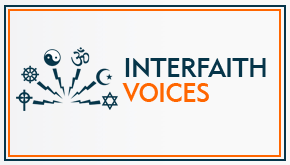Hate Crimes Are on the Rise Across the Country
Tracking hate crimes has its challenges, but one trend is clear: the number of hate crimes, particularly those targeting Muslims and Jews, is on the rise. That finding emerged in several reports from the FBI’s Hate Crimes Statistics, the Anti-Defamation League, South Asian Americans Leading Together (SAALT), and the Southern Poverty Law Center. To understand what is happening and how communities are responding, we talk to Becky Monroe, the director of the Stop Hate Project at the Lawyers Committee for Civil Right Under Law. We also hear from Shayna Stevens, a board member of the Arizona chapter of the Council on American-Islamic Relations, or CAIR-AZ. She tells us how the Muslim community and allies in the faith community responded to a recent incident in which two moms live-streamed themselves using anti-Muslim slurs and taking flyers and brochures from the local mosque in Tempe, Ariz.
How Communities of Faith Are Responding to Hate
Faith communities are responding in different ways to hate, from creating proactive relationships to holding unity walks and interfaith dinners. We talk to Rabbi Bradd Boxman of Congregation Kol Tikvah in Parkland, Fl. He organized a proactive Rapid Response to Hate Network there that was inspired by his outreach efforts years ago in Danbury, Conn., shortly after 9/11. We also hear from executive director Rabbi Gerry Serotta and lead organizer Symi Rom-Rymer of the Interfaith Conference of Metropolitan Washington. Serotta says he’s finding a silver lining in the current political climate: a new interest in learning about different traditions and desire to stand in unity with targeted communities.
If Fear and Hate Are Linked, How Can We Get Unafraid
Understanding fear, when it is important and when it undermines our sense of security is the focus of Pastor Adam Hamilton’s new book, Unafraid: Living with Courage and Hope in Troubled Times. We talk to Hamilton and learn that his motivation for writing the book, based originally on a series of sermons, was inspired by the 2016 elections. He discusses how fear of the other can be weaponized and used to divide and in some instances, lead to violence. Hamilton also describes his own efforts to introduce his congregation, one of the largest in Kansas, to their Muslim neighbors, and what they learned about each other.



